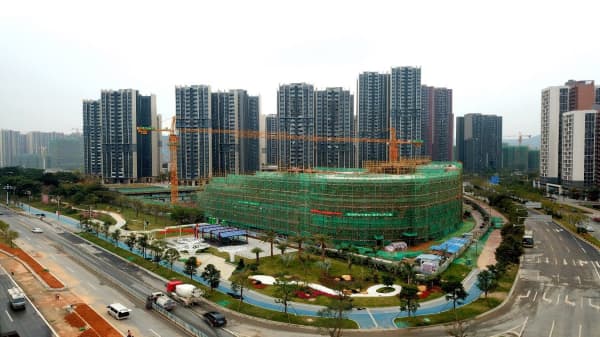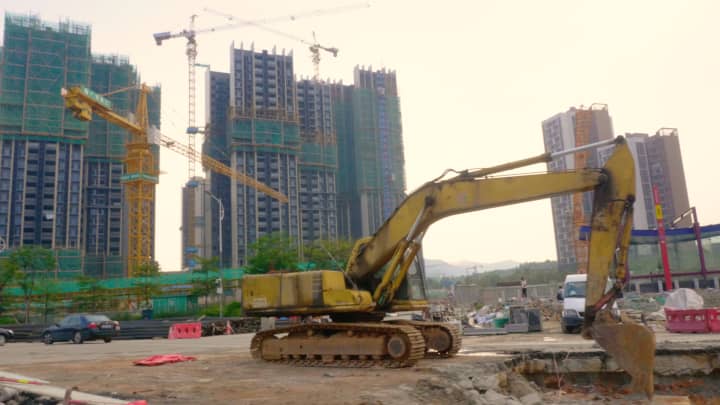
Singapore was China's largest foreign investor in 2018 — and it was for the sixth consecutive year, according to the city state's trade ministry.
One major investment boost came from the Sino-Singapore Guangzhou Knowledge City, a sprawling project that will convert farmlands into a sustainable urban development expected to eventually be home to half a million people.
The project is a 50-50 joint venture between Singapore-government backed, Ascendas-Singbridge and China's Guangzhou Development District Administrative Committee.
CNBC visited the site which began construction about five years ago and is now has a number of half-built high-rise buildings against a silhouette of cranes. It's located some 45 minutes by car from the Guangzhou, the third largest city in China, which recently connected its massive rail network to Knowledge City's new trains.
The first phase of the knowledge city has just been launched. It was built for about 80,000 people living and working across slightly more than two square miles, and in this phase alone, there will be18 schools.
When completed, Knowledge City could eventually cover an area that's nearly 50 square miles — almost the size of Pittsburgh city in Pennsylvania.
It's now relocating farmers to high-rise buildings within the area and encouraging new companies to hire and retrain them.
By converting farmlands into a modern city, the governments hope to both create an economic hub for commerce and research while also creating a model that could eventually be applied to rural areas elsewhere in China and beyond, said Nee Pai Chee, vice president Singbridge International.
"Small is beauty," Nee told CNBC at the Knowledge City visitor center. "At a micro-level, Singapore does have its experience of how to manage, maybe, a mid-size or small-size city, so I think we can offer some of our experience to China."
The project hopes to attract some of Singapore's tech talent who are eager to tap into a bigger market.
Knowledge City is adding incentives such as subsidies and free office space to attract companies from Singapore and beyond, ranging from startups to Fortune 500 companies that meet its criteria. The developers are also offering to pay for things like public listing applications and are providing IPO coaching and legal assistance.
But how can this once-rural area and still mostly-vacant city, appeal to young tech talent who tend to flock to skyscraper hubs like Singapore, Hong Kong, Shenzhen or Guangzhou?
Nee said he often tells young talents coming to the southern part of China or The Bay Area that they will be "well looked after by us," as well as Enterprise Singapore — a government-backed agency that hopes to grow Singaporean companies both at home and abroad.
Singapore has a long history of collaboration with China. The Suzhou Industrial Park in 1994 and Tianjin Eco-City in 2008 are both still running.

No comments:
Post a Comment